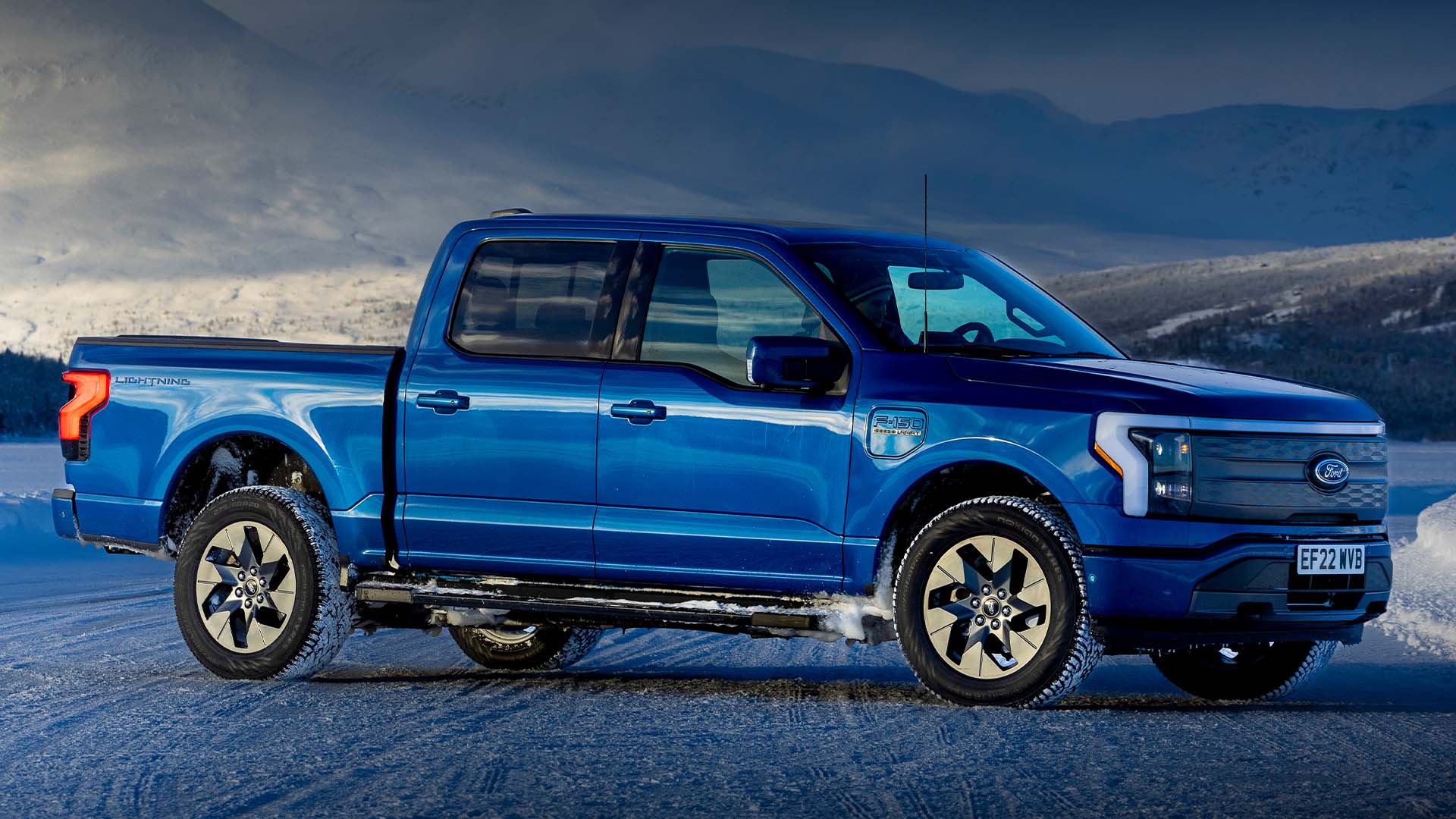

Norway will take all the electric vehicles it can get, no matter how big they are. That’s proven by the Ford F-150 Lightning, which is now making its way to the Scandinavian peninsula. The country is known for buying up Teslas in droves and the Mustang Mach-E is a top-five seller there, too, so that’s why Ford chose to make it the battery-powered pickup’s first global market.
Ford says it’ll start shipping F-150 Lightnings to Norway next year. Each example will be a Lariat Launch Edition in Antimatter Blue, which makes sense because these rigs will already be pretty pricey by the time they make it across the Atlantic. A Ford spokesperson told The Drive the trucks would cost roughly $113,000 by the time they make it over there, although final pricing hasn’t yet been set. A barebones Pro model would be a lot less attractive if they had to pay even more than the $61,869 it costs us here.
Ford Norway’s Managing Director Per Gunnar Berg says customers are “literally banging on my door” to sell the F-150 Lightning there. The truck will be a better fit in the largely wooded country, both literally and figuratively, since it’s not as crowded as other European nations. Even though full-size trucks aren’t hugely popular in Norway, I bet Ford will sell enough to make it worth the extra work.
The F-150 Lightning is manufactured at the Rouge Electric Vehicle Center in Dearborn, Michigan. Ford pledges to build 150,000 of them annually, and a limited number of those trucks will be shipped abroad. I reached out to the automaker they confirmed that all the Lariat Launch Editions headed to Norway get the standard-range battery pack, which means they’ll manage somewhere around 240 miles of range. The bigger, extended-range pack won’t be available.
There are more than 70 specialized Ford EV dealers in Norway, as electric cars make up the vast majority of its new vehicle sales. Charging infrastructure is better there as well, so that shouldn’t be a concern. They really have this EV business figured out.

Got a tip or question for the author? Contact them directly: caleb@thedrive.com